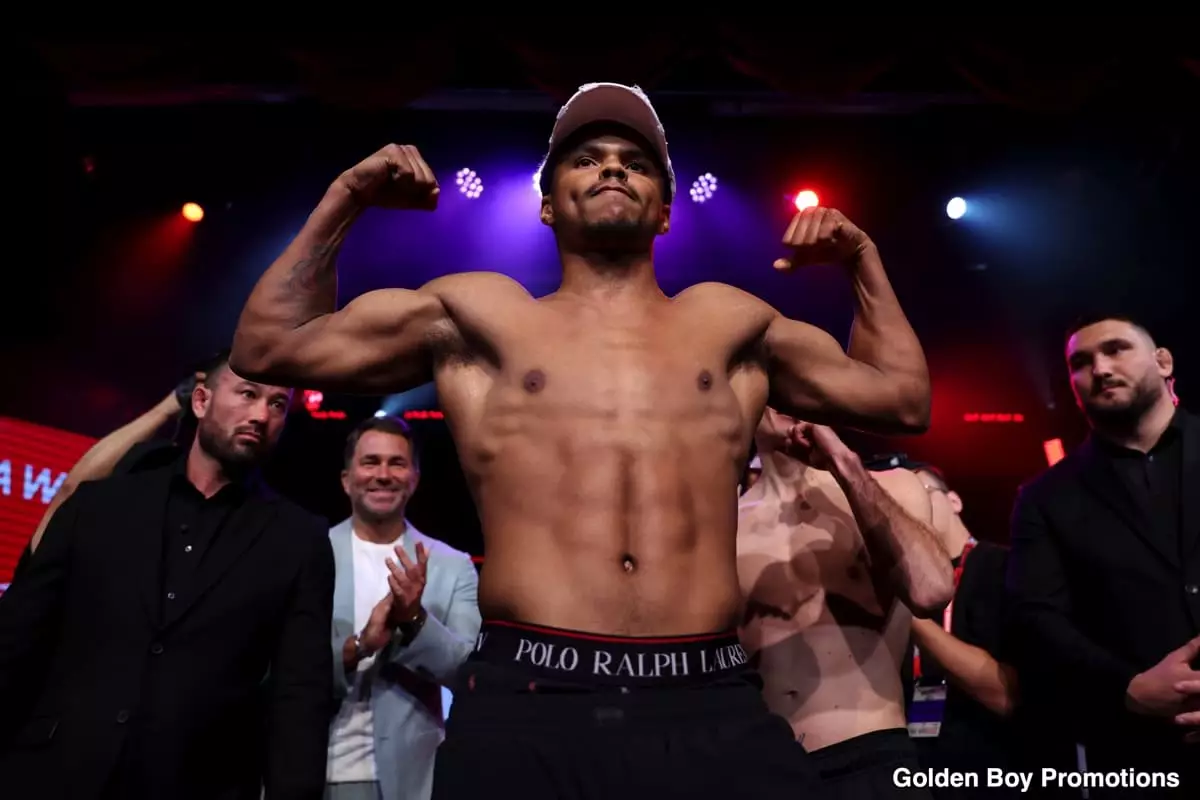In the fiercely competitive world of boxing, fighters continually seek ways to elevate their status, staking claims that can sometimes border on the absurd or disrespectful. Shakur Stevenson’s recent disparagement of Sugar Ray Robinson exemplifies a dangerous trend—one where arrogance and ignorance coexist, clouding genuine talent. While confidence is vital in the ring, crossing into disrespect reflects a lack of humility and understanding, undermining the sport’s rich history and integrity. It is not enough to be talented; a fighter must cultivate respect, passion, and humility to truly earn their place.
Stevenson’s dismissive comments about Robinson, calling him “buns,” indicate a troubling disconnect from the sport’s foundational icons. Robinson’s legendary status is the cornerstone of boxing’s identity, and to casually degrade such an icon reveals either a superficial grasp of history or a reckless desire for attention. Boxing is a sport rooted deeply in tradition and respect, and when fighters dismiss the sport’s heritage to elevate their ego, they risk diluting the essence of what makes boxing compelling.
Moreover, Stevenson’s suggestion that Terence Crawford could “run rings around” Robinson displays a lack of historical awareness. Robinson competed in eras where the sport demanded resilience, technical mastery, and ferocious fighting spirit—qualities that transcend weight classes and generations. To claim superiority over such a legend without acknowledging his accomplishments is not only naive but also disrespectful. It’s a demonstration that, sometimes, the pursuit of notoriety takes precedence over genuine respect for the craft.
Authenticity vs. Performance: The Need for Genuine Courage
A fighter’s reputation is built not just on wins but on the manner of their fights. The fighters who truly inspire are those who show courage, take risks, and seek to entertain while fighting with integrity. Stevenson’s reputation in some circles has been marred by perceptions of playing it safe, opting for a “safety-first” approach that prioritizes wins over excitement. While a strategic approach has its place, boxing ultimately rewards those who dare to take risks, who believe in their power and skill enough to go for the knockout or at least provide compelling action.
Sugar Ray Robinson and Sugar Ray Leonard exemplify fighters who fought with relentless grit, pushing the limits and constantly seeking to entertain fans and earn respect. Stevenson, with his 11 KOs out of 23 bouts, has yet to demonstrate that same relentless hunger. Critics suggest that his style leans toward cautious, calculated boxing that values survival over spectacle. This approach can stagnate a fighter’s growth and alienate fans hungry for excitement. Action in the ring is an essential element of the sport’s appeal—without it, boxing risks becoming monotonous.
What’s more alarming is the disconnect between Stevenson’s self-perception and the perception of boxing purists. Confidence is crucial, but overconfidence often blinds fighters from the humility required to learn, grow, and truly respect the sport’s legends. Risk-taking and authenticity—qualities exemplified by Robinson—are what elevate fighters from good to great. Until Stevenson embraces this ethos, his claims remain hollow, and his standing within the boxing community risks being viewed as superficial.
The Power of Legacy and Respect in a Modern Arena
Historically, boxing’s giants attained greatness not only through skill but through character—through a reverence for its history and a willingness to learn from it. Barry McGuigan’s critique of Stevenson underscores an essential truth: claiming the throne requires more than just a series of wins; it demands a deep understanding and appreciation of boxing’s legacy. When modern fighters dismiss legends like Robinson, they inadvertently diminish their own potential to be remembered as true champions.
There is also an important lesson in humility. Respectful fighters tend to grow the sport rather than tarnish it. Stevenson’s comments, if left unchallenged, could set a damaging precedent—one where bravado replaces genuine mastery. Fans and veteran observers alike want to see fighters who not only possess talent but who also exhibit integrity, class, and a willingness to honor those who paved the way.
Fighting is an art that demands the bravery to stand with honor, to celebrate the giants upon whose shoulders current champions stand. If Stevenson wishes to carve out a legacy that extends beyond the ring’s confines, embracing humility and respecting boxing’s storied history must be part of that journey. Only then can he transcend the labels of cautious fighter and emerge as a true icon—one who not only wins matches but earns everlasting respect.

